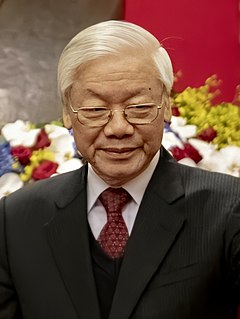A Quote by Jaron Lanier
A market economy cannot thrive absent the well-being of average people, even in a gilded age.
Quote Topics
Related Quotes
What is it about a work of art, even when it is bought and sold in the market, that makes us distinguish it from . . . pure commodities? A work of art is a gift, not a commodity. . . works of art exist simultaneously in two “economies”, a market economy and a gift economy. Only one of these is essential, however: a work of art can survive without the market, but where there is no gift, there is no art.
You cannot just depend on the market, because the market will say: China needs oil; China needs coal; China needs whatever, and Africa has got all these things in abundance. And we go there and get them, and the more we develop the Chinese economy, the larger the manufacturing is, the more we need global markets - sell it to the Africans which indeed might very well destroy whatever infant industries are trying to develop on the continent. That is what the market would do.
When you talk about the security and safety of average Americans it doesn't do average Americans a lot of good to expand America's military footprint if the daily lives of average Americans are being undermined by the fact that we're no longer able to compete in a global economy. I think that's the kind of human security we have to pay more attention to.
Neoliberalism is going to fail by being replaced. The system is entirely broken. Whenever you have a system that equates a market economy with a market society and claims that capitalism is democracy, you've not only got a massive lie being imposed on the people, but you've got the foundation for a form of authoritarianism and a much more intensive form of class warfare.








































